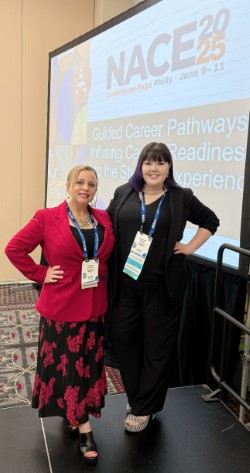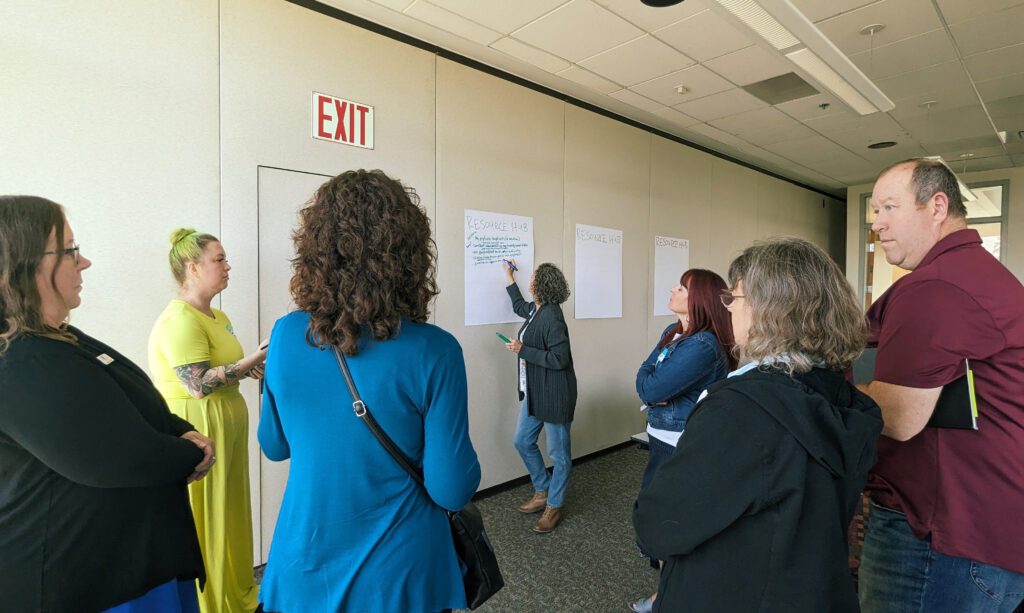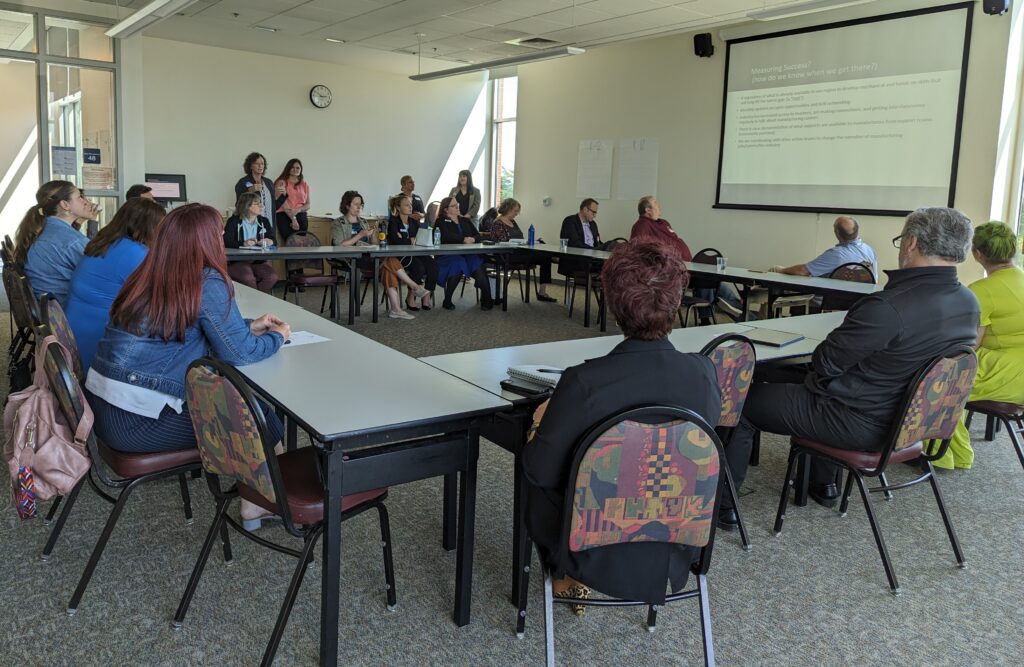Clark Champions Career-Connected Learning

On June 10, we were proud to represent Clark College at the National Association of Colleges and Employers (NACE) Conference. Our session, titled “Guided Career Pathways: Infusing Career Readiness into the Student Experience,” drew a crowd of approximately 150 higher education professionals and employers from across the country and received overwhelmingly positive feedback.
The presentation tackled a well-documented concern: the perceived disconnect between college preparation and real-world career readiness. We highlighted data from both students and employers, demonstrating the need for stronger alignment between academic learning and workplace expectations.
We outlined Clark College’s dual-track approach to student success, integrating career development alongside onboarding, academic planning, and retention through the Penguin Path model. Our data – from faculty surveys, participation in communities of practice, and student focus group feedback – showcased how Clark faculty are already actively engaged in career-connected teaching strategies.
Career-connected learning is truly a cornerstone of Clark College’s student success strategy, aligning closely with the Guided Pathways framework. This approach emphasizes experiential learning, work-based opportunities, and industry-informed curriculum – critical elements in ensuring that students achieve course and program outcomes that meaningfully prepare them for career advancement. Pillar 4 of the Guided Pathways model states: “Ensure that learning is happening with intentional outcomes,” which includes alignment with successful transfer and career readiness.
One of the session’s key takeaways was the importance of deepening industry engagement, particularly by expanding internship opportunities and weaving career connections into general education coursework – an effort that will be supported with Title III funding.
Clark College continues to lead in developing innovative, career-ready curriculum that bridges the gap between classroom and career. The enthusiastic response to this national presentation confirms that the work happening at Clark resonates with institutions and employers across the country.
Learn More
Learn more about this impactful session by downloading the NACE 2025 conference presentation.
Participation in career-connected learning allows students to gain career-related work experiences, which has been shown to increase student completion and short-term employment/earnings. Learn more about career-connected learning by visiting Clark’s Career Hub.

